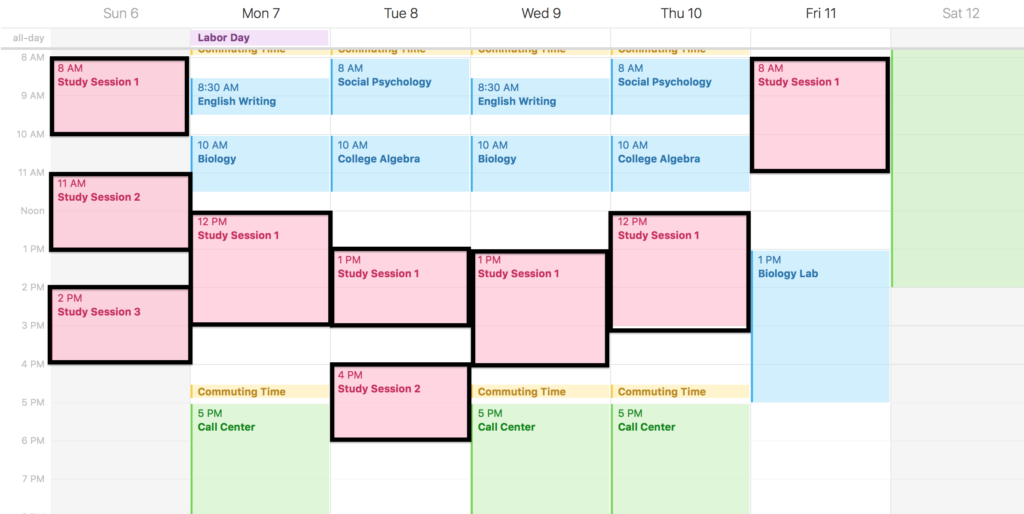Online learning has revolutionized the way we acquire knowledge, develop new skills, and advance in our careers. Whether you’re pursuing a full degree, upskilling for your job, or exploring a new hobby, online learning offers flexibility and access like never before. But to truly benefit, you need more than just enrollment—you need a strategy.
In this guide from Learners View, we’ll walk you through the most effective ways to maximize your online learning experience. From picking the right course to staying motivated and organized, this post will help you take full advantage of digital education.
Why Online Learning Is Here to Stay
Online education is more than a trend—it’s a movement. With top institutions and platforms offering high-quality content at your fingertips, learners from all backgrounds can grow on their own terms.
Key Benefits of Online Learning:
- Flexibility to learn anytime, anywhere
- Access to global experts and resources
- Cost-effective alternatives to traditional learning
- Variety of formats: videos, readings, interactive exercises
- Self-paced or scheduled options

Choose the Right Course and Platform
Not all courses—or platforms—are created equal. Start by identifying your goals. Are you learning for work, certification, or personal growth?
Things to Consider:
- Reputation of the platform (e.g., Coursera, Udemy, edX)
- Course reviews and ratings (see Learners View’s platform reviews!)
- Instructor credentials
- Syllabus clarity and learning outcomes
- Assignments, quizzes, and interactive content

Recommended Platforms:
- Coursera – University-grade content with certifications
- Udemy – Affordable, diverse topics
- edX – Academic-level courses with free auditing
- LinkedIn Learning – Great for professionals
- Skillshare – Creative and freelance-focused
Set Clear Learning Goals
Without direction, it’s easy to lose focus. Set SMART goals:
Specific, Measurable, Achievable, Realistic, and Time-bound.
Example Goals:
- “Complete a course in digital marketing within 30 days.”
- “Spend 5 hours a week learning Python.”
- “Earn a certificate in UX design by the end of the semester.”
Create a Study Schedule and Stick to It
Online learning offers flexibility, but that can lead to procrastination. Treat your course like a traditional class with set hours.
Scheduling Tips:
- Block time on your calendar
- Use time-blocking apps like Google Calendar or Notion
- Include breaks to avoid burnout
- Stick to a consistent routine

Set Up a Distraction-Free Learning Space
Where you study matters. Choose an environment that encourages focus.
Optimize Your Learning Space:
- Comfortable chair and desk
- Good lighting and ventilation
- Noise-cancelling headphones
- Eliminate distractions (put phone on Do Not Disturb)
Actively Engage With the Material
Passive watching = poor retention. Make the learning experience interactive.
Engagement Tips:
- Take detailed notes as you go
- Use flashcards (e.g., Anki)
- Pause videos to reflect or research
- Join discussion forums or communities
- Summarize each module in your own words
Participate in Community and Peer Learning
Learning doesn’t have to be lonely.
Get Involved:
- Join the course’s discussion forums
- Create a study group on Slack or Discord
- Follow relevant Reddit or Facebook groups
- Ask and answer questions—it reinforces your knowledge

Use Productivity Tools & Learning Aids
There are hundreds of tools that can improve your online learning experience.
Top Tools:
- Notion or Evernote – for notes and knowledge management
- Trello or Asana – for task management
- Grammarly – writing aid
- Forest – for focus and Pomodoro timer
- Quizlet – for practice tests and flashcards
Test Yourself Frequently
Self-assessment is key to retention.
Try This:
- Use built-in course quizzes
- Create your own tests
- Teach back what you learned to someone else
- Use spaced repetition for memorization
Review and Revise Regularly
Don’t wait until the final module to review.
Weekly Review Checklist:
- Revisit previous notes
- Update your progress tracker
- Reflect on what you’ve learned
- Identify weak areas to revisit
Combine Courses With Real Projects
Theory is important, but application is everything.
Ways to Apply Learning:
- Build a portfolio (for design or dev courses)
- Freelance with new skills
- Solve real-world problems using your knowledge
- Volunteer to practice your skills in real settings

Don’t Be Afraid to Quit a Bad Course
Your time is valuable. If the course doesn’t meet your expectations or goals, move on.
Red Flags:
- Outdated content
- Poor instructor communication
- No real structure or outcomes
- Repetitive or irrelevant material
Check reviews on Learners View before enrolling next time!
Leverage Course Certificates and Share Results
Show off your learning!
Share on:
- Resume/CV
- Personal website or portfolio
- Job applications
Reflect on Your Learning Journey
At the end of every course, reflect.
Questions to Ask:
- What did I learn?
- What skills can I apply today?
- What would I do differently next time?
- What course should I take next?
Stay Consistent and Keep Momentum
Don’t stop after one course—keep learning.
Pro Tip:
Create a learning roadmap with multiple milestones, courses, and goals.
Use Course Review Sites Like Learners View
Before enrolling, always check reliable course reviews. At Learners View, we test and review top online courses and platforms to help you make informed decisions.
- Compare platforms
- Find top-rated courses
- Read real student experiences
FAQ: Getting the Most Out of Online Learning
Turn off notifications, use focus tools, study in a quiet space, and create a consistent schedule to train your focus.
Consider your goals, read course reviews, compare features, and explore trial options on review sites like Learners View.
Final Thoughts: Your Learning, Your Way
Online learning is a powerful tool—but like all tools, it works best when used properly. With the right mindset, structure, and resources, you can turn any online course into a stepping stone toward your personal or professional goals.
At Learners View, we’re here to guide you every step of the way. Explore our reviews, comparison pages, and tips to make smarter learning decisions.
Author Profile
- Jiya Gupta
- At Learners View, we're passionate about helping learners make informed decisions. Our team dives deep into online course platforms and individual courses to bring you honest, detailed reviews. Whether you're a beginner or a lifelong learner, our insights aim to guide you toward the best educational resources available online.
Latest entries
 Course PlatformsOctober 3, 2025We Asked 10 Experts: What’s the Best Online Course You’ve Ever Taken?
Course PlatformsOctober 3, 2025We Asked 10 Experts: What’s the Best Online Course You’ve Ever Taken? Career GrowthOctober 2, 2025MIT OpenCourseWare Review: Can Free Courses Compete with Paid Ones?
Career GrowthOctober 2, 2025MIT OpenCourseWare Review: Can Free Courses Compete with Paid Ones? Course PlatformsOctober 1, 2025How Online Learning Changed My Career – Real Student Stories
Course PlatformsOctober 1, 2025How Online Learning Changed My Career – Real Student Stories Course PlatformsSeptember 16, 2025Best Graphic Design Courses for Freelancers
Course PlatformsSeptember 16, 2025Best Graphic Design Courses for Freelancers




